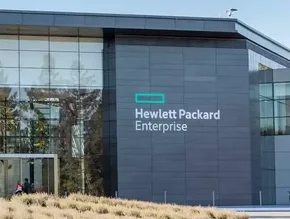Five Minutes with: Rob Crowley, CTO at Fluent Commerce

Providing a premium customer experience requires retailers to adapt quickly and challenge the status quo, but old systems can’t support this new reality. This month, we sat down with Rob Crowley, CTO at Fluent Commerce, to discuss the key benefits of composable commerce over traditional ecommerce approaches.
What is composable commerce?
Composable commerce is about selecting and assembling best of breed solutions to satisfy a customer's distinct needs. Instead of using a one-size-fits-all legacy approach, composable commerce leverages modern, flexible and customisable technologies like the ones in the MACH Alliance to adapt to the ever-changing market dynamics of today and tomorrow. MACH stands for:
- Microservices: Individual pieces of business functionality that are independently developed, deployed, and managed.
- API-first: All functionality is exposed through an API.
- Cloud-native SaaS: That leverages the cloud, beyond storage and hosting, including elastic scaling and automatically updating.
- Headless: Front-end presentation is decoupled from back-end logic and channel, programming language, and is framework agnostic.
At Fluent Commerce we believe that MACH certified solutions will be the ones taking businesses into the future.
If we look at the underpinning concepts of composable commerce, technical jargon aside, it's about enabling discrete pieces of business functionality to evolve at their own pace and composing these in a modular fashion. Today’s customers have more exacting desires, so our response needs to be more tailored. It also means being open to extension; having well defined API contracts and rich developer experiences to allow these to come together in a graceful and effective way.
What are the key benefits of composable commerce over traditional ecommerce approaches?
Many of the benefits of composable commerce are closely aligned to the technical benefits we'd see more broadly of a modular architecture, in particular, the flexibility to adapt quickly. Not all parts of a solution will need to evolve at the same rate as retailers will not necessarily be innovating in all areas at once. Composable commerce enables this flexibility while ensuring faster development and deployment.
This agility is a huge advantage in the modern marketplace where businesses need to be able to adapt to emerging trends fast. Making modifications to a traditional commerce platform can take weeks if not months and can incur a huge IT bill, especially if development responsibilities are outsourced. A headless commerce platform allows businesses to oversee change implementation in-house, and changes are far quicker to implement. Enabling retailers to evolve gracefully as customer needs change, composable commerce moves away from a build-everything-yourself model, favouring leveraging and reusing existing solutions to maximise economies of scale.
What advice do you have for companies looking to get started with composable commerce?
The first step for organisations looking to get started with composable commerce is to establish their ‘why?’. Consider: What business factors are driving your change in technology strategy? What Customer Experience outcomes are you looking for? Having a clear understanding of incentives and goals will make it easier to select the right solution for you.
Composable commerce is often talked about in technical terms but as an effective technology strategy, it doesn't live in a vacuum. Rather, it's meant to amplify the business strategy. Understanding these goals will make it easier to guide decision making and convince non-technical stakeholders of the benefits, especially if you have a clear idea of how these technical changes will map to company KPIs.
One huge difference between a unified platform and a composable platform is that integration plays a key role, and I would advise every single person to look at the quality or the likely indicators of a quality integration. Reviewing the API documentation, SDKs and overall developer experience that the composable product has will be a leading indicator of how much pain or lack of you will see when the integration starts.
I would also advise to look at the skills within your organisation and what skills would you need to be able to effectively harness that product. If you don’t have the appropriate skills in your organisation today, you’ll need to consider your strategy for gaining access to them whether it be via your partners, internal training or hiring. Your solution provider may be able to point to specialised training options to help your team hit the ground running. Generally, we see that developers love working with MACH technology. This helps attract and retain tech talent as well.
Is composable commerce a worthwhile investment?
Investing in composable commerce will pay dividends in the long run. It is important to focus on the quick wins that drive value fast first, then roll out more functions and features to drive up returns even more. I’d recommend asking peers such as vendors in the MACH alliance if they can share their experience of the total cost of ownership over the entire lifecycle.
The rate of change will then increase dramatically as you enable business users to react and adapt to changing customer needs without being throttled through a central technical team. While the journey to composable commerce can be daunting to start with, it is absolutely worth the investment.
******
For more insights into the world of Technology - check out the latest edition of Technology Magazine and be sure to follow us on LinkedIn & Twitter.
Other magazines that may be of interest - AI Magazine | Cyber Magazine.
Please also check out our upcoming event - Cloud and 5G LIVE on October 11 and 12 2023.
******
BizClik is a global provider of B2B digital media platforms that cover Executive Communities for CEOs, CFOs, CMOs, Sustainability leaders, Procurement & Supply Chain leaders, Technology & AI leaders, Cyber leaders, FinTech & InsurTech leaders as well as covering industries such as Manufacturing, Mining, Energy, EV, Construction, Healthcare and Food.
BizClik – based in London, Dubai, and New York – offers services such as content creation, advertising & sponsorship solutions, webinars & events.






